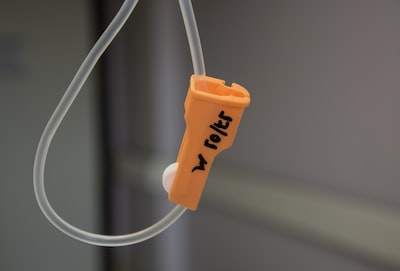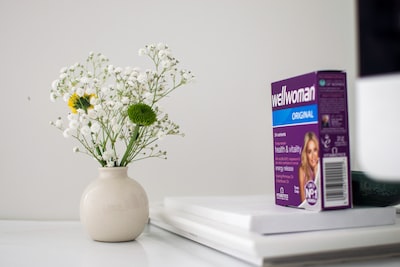‘How does diet impact skin health?’ It’s a question that many of us have asked ourselves at one point or another, whether we’re battling acne, wrinkles, or just looking to achieve that elusive glowing complexion. The truth is, what we put into our bodies can have a profound impact on the health of our skin, and not just in terms of how it looks, but also how it functions.
A poor diet lacking in essential nutrients can leave our skin looking dull, dry, and prone to breakouts. On the other hand, a diet rich in vitamins, minerals, and antioxidants can help to nourish our skin from the inside out, leaving it looking radiant, hydrated, and youthful.
So, what are some of the key nutrients that our skin needs to thrive? Let’s take a closer look at 8 nutritional deficiencies that can be revealed in your complexion. From vitamin C to omega-3 fatty acids, these essential nutrients play a crucial role in supporting healthy skin function and can help to address a range of common skin concerns.
So, next time you reach for a snack, think about how it might be impacting your skin health and consider making some simple dietary changes to support a glowing complexion.

Pale Complexion: Iron deficiency
Your skin can reveal a lot about your health. Pale skin may mean low iron levels, acne could suggest too much sugar, and brittle nails might signal a lack of biotin. Dry patches might need omega-3 fatty acids. Your skin acts like a charades player, hinting at what nutrients you need.
So, pay attention to your skin – it reflects your body’s inner workings. Understanding its message could help you become healthier.
Brittle Nails: Lack of biotin
Biotin, known as the ‘beauty vitamin,’ is essential for healthy hair, skin, and nails. Not enough biotin can cause brittle nails, thinning hair, and skin rashes. Your body shows signs of biotin deficiency through these visible symptoms, so it’s important to pay attention. Including biotin-rich foods like eggs, nuts, and spinach in your diet can help. If you’re feeling tired or moody, it could be due to lack of biotin. Biotin helps with energy and blood sugar levels, so a deficiency can leave you feeling exhausted and irritable.
Recognizing signs of biotin deficiency in your skin, hair, and overall health allows you to take action. Talking to a healthcare provider and adding biotin supplements to your daily routine can help restore balance and energy. Your skin reflects your internal health, so be attentive to its signals about your nutritional needs.
Dry, Flaky Skin: Omega-3 deficiency
Remember to take short breaks throughout the workday to prevent burnout. By stepping away from your desk for a few minutes, you can give your mind a rest and come back feeling refreshed and ready to tackle the next task. Whether it’s going for a short walk, grabbing a snack, or simply stretching at your desk, taking breaks is crucial for staying productive and maintaining well-being.
Always prioritize your health and mental well-being. Taking time for yourself throughout the day is essential for maintaining productivity and preventing burnout. Make sure to listen to your body and mind, and don’t be afraid to step away from work when needed. Your overall well-being is important, so take breaks as needed to recharge and refocus. Your work will benefit from it in the long run.
Acne Breakouts: Excess sugar intake
Eating too much sugar can harm your skin, causing acne and aging. It’s like giving your skin a sugary drink every day, making it look tired and dull. Before grabbing a sugary treat, think about how it can affect your skin.
Excessive sugar is bad for your skin. Picture your skin cells as flowers struggling under a sugar overload. Glycation can harm collagen and elastin in your skin, resulting in sagging skin and wrinkles. It speeds up aging.
To maintain fresh and youthful skin, reduce sugar intake and choose healthier sweet alternatives.
Dark Under-Eye Circles: Poor sleep or iron deficiency
Eating leafy greens, red meat, and legumes is important for getting enough iron. Supplements and a well-rounded diet can help raise iron levels.
In addition to diet, there are other factors that can affect iron absorption, such as vitamin C and calcium intake. It is important to pay attention to these factors when trying to increase iron levels.
Iron deficiency can lead to symptoms such as fatigue, weakness, and pale skin. It is important to consult with a healthcare provider if you suspect you may have low iron levels.
Red, Swollen Gums: Lack of vitamin C
Oranges, strawberries, and bell peppers are vital for increasing vitamin C levels. Skipping citrus fruits can result in low vitamin C intake. Adding colorful fruits and vegetables is a fun way to boost your vitamin C intake. Vitamin C helps with tissue repair and promotes healthy skin. Start including more citrus fruits and fresh produce to prevent vitamin C deficiency and improve overall health.
Hair Loss: Zinc or protein deficiency
The correlation between zinc deficiency and hair loss is a significant concern. Zinc is crucial for hair growth and often overlooked in our diets. Symptoms such as thinning hair, brittle nails, and skin issues may indicate a lack of zinc. Including zinc-rich foods like oysters, nuts, and seeds can help combat deficiency and promote healthier hair growth.
If you’re experiencing excessive hair shedding, consulting with a healthcare provider to discuss potential deficiencies is recommended. Understanding the link between zinc and hair loss is important for maintaining healthy hair and overall well-being. Incorporating zinc-rich foods into your diet or considering supplements can make a significant difference in addressing hair loss caused by deficiency.
Cracked Lips: Lack of B vitamins
B vitamins are important for skin health, keeping your skin clear and promoting natural renewal. Not enough B vitamins can cause dryness, acne, and a dull complexion. These nutrients help cells grow and repair, keeping skin vibrant and youthful.
Eating foods rich in B vitamins like leafy greens, whole grains, and lean proteins can help improve your skin. A B complex supplement, with guidance from a healthcare provider, can also address deficiencies. Ensuring you get enough B vitamins can benefit your skin and overall health.
Frequently Asked Questions
What are some common signs of nutritional deficiencies that can be seen in the skin?
Some common signs include dry, flaky skin (indicating a lack of essential fatty acids), pale or yellowish skin (possible iron deficiency), and eczema or dermatitis (possible vitamin D deficiency).
How can one improve their skin complexion through proper nutrition?
Eating a balanced diet rich in fruits, vegetables, whole grains, and lean proteins can help improve skin health. Supplementing with key nutrients like omega-3 fatty acids, vitamin D, and iron may also be beneficial for those with deficiencies.
Can nutritional deficiencies be completely reversed through diet?
In many cases, yes. By addressing the root cause of the deficiency and incorporating nutrient-rich foods into the diet, it is possible to reverse or improve the condition of the skin over time. However, some individuals may require supplementation or medical intervention for more severe deficiencies.Are there any specific foods or nutrients that are particularly beneficial for skin health?
Foods high in antioxidants, such as berries, leafy green vegetables, and nuts, can help protect the skin from damage and improve its overall appearance. Omega-3 fatty acids found in fatty fish and flaxseeds can also support healthy skin.
How important is hydration for maintaining healthy skin?
Hydration is crucial for healthy skin. Drinking an adequate amount of water each day helps to flush out toxins, maintain skin elasticity, and prevent dryness. Supplementing with moisturizing skincare products can also help to keep the skin hydrated.
Overview
In conclusion, as you navigate the maze of skincare products and treatments, remember that your skin is a reflection of what’s happening inside your body. Those dark circles under your eyes? Maybe you need more iron.
That persistent acne? Perhaps you’re lacking in zinc. Listen to what your skin is trying to tell you, pay attention to the signs of nutritional deficiencies, and take action to nourish your body from the inside out.
Your skin is more than just a canvas for makeup or a barrier against the elements – it’s a living, breathing organ that deserves the best care possible. So next time you reach for that sugary snack or skip your daily dose of vegetables, think about how it might be affecting your skin.
Remember, beauty truly does start from within. Embrace a holistic approach to skincare and watch as your complexion transforms before your eyes.
Your body will thank you, and your skin will glow with health and vitality. Don’t wait until it’s too late – start nourishing your body today, and watch as your skin reflects the vibrant, radiant being that you truly are.






